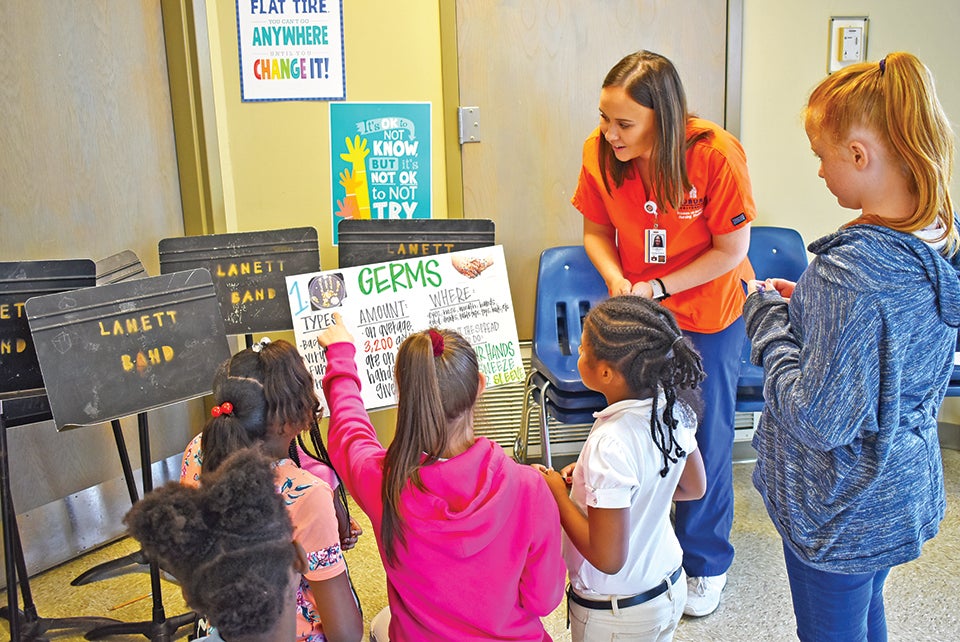AU Nursing students teach W.O. Lance the importance of hygiene
Published 4:46 pm Friday, September 28, 2018
LANETT — Cold and flu season is just around the corner, so to combat the spread of germs and bacteria that can cause these common illnesses, a group of Auburn University’s School of Nursing visited W.O. Lance Elementary to teach a lesson on hygiene to fourth, fifth and sixth graders.
Working with the Chambers County Extension Office, Associate Professor of Nursing Dr. Libba McMillan brought the group of four students to Lanett on Friday to teach the class as part of their community assessment projects.
While this group worked with school children, two other groups will be doing similar projects in LaFayette and Valley with different demographics.
“They had to identify needs of the students, create the whole teaching plan and even improvise a bit,” McMillan said. “They have been working on this community assessment for about two semesters.”
The group, made up of seniors Leiron Bayless, Hannah Hall, Celest Hutchisson and Carley Powell, had four stations set up around the music room of W.O. Lance. The elementary students were split between the four stations and would rotate between learning about “sneeze etiquette” and where germs originate, where germs tend to hide on hands, how to wash hands properly and the difference between hand washing and sanitizer.
“We came to the school and talked to the nurse and asked her what a big problem was that the students faced here,” Powell said. “She said that the flu and colds are the main thing. Its basic hand washing and hygiene that they need.”
The project is to give the future nurses hands-on experience while using surveys and data to meet community needs.
“We all benefit from the community being healthy,” Hutchisson said. “We get to affect one patient in the hospital but if they are going back into the community that is not able to help that person sustain a healthy lifestyle than its not helping them as a whole.”
After somehow managing to get kids excited about personal hygiene for the duration of the class, the nursing students sent them home with informational cards that they could share with their family, making Lanett healthier and more aware.
“They’re learning how to incorporate group teaching at the community level.” McMillan said. “Patient education is a huge part.”






